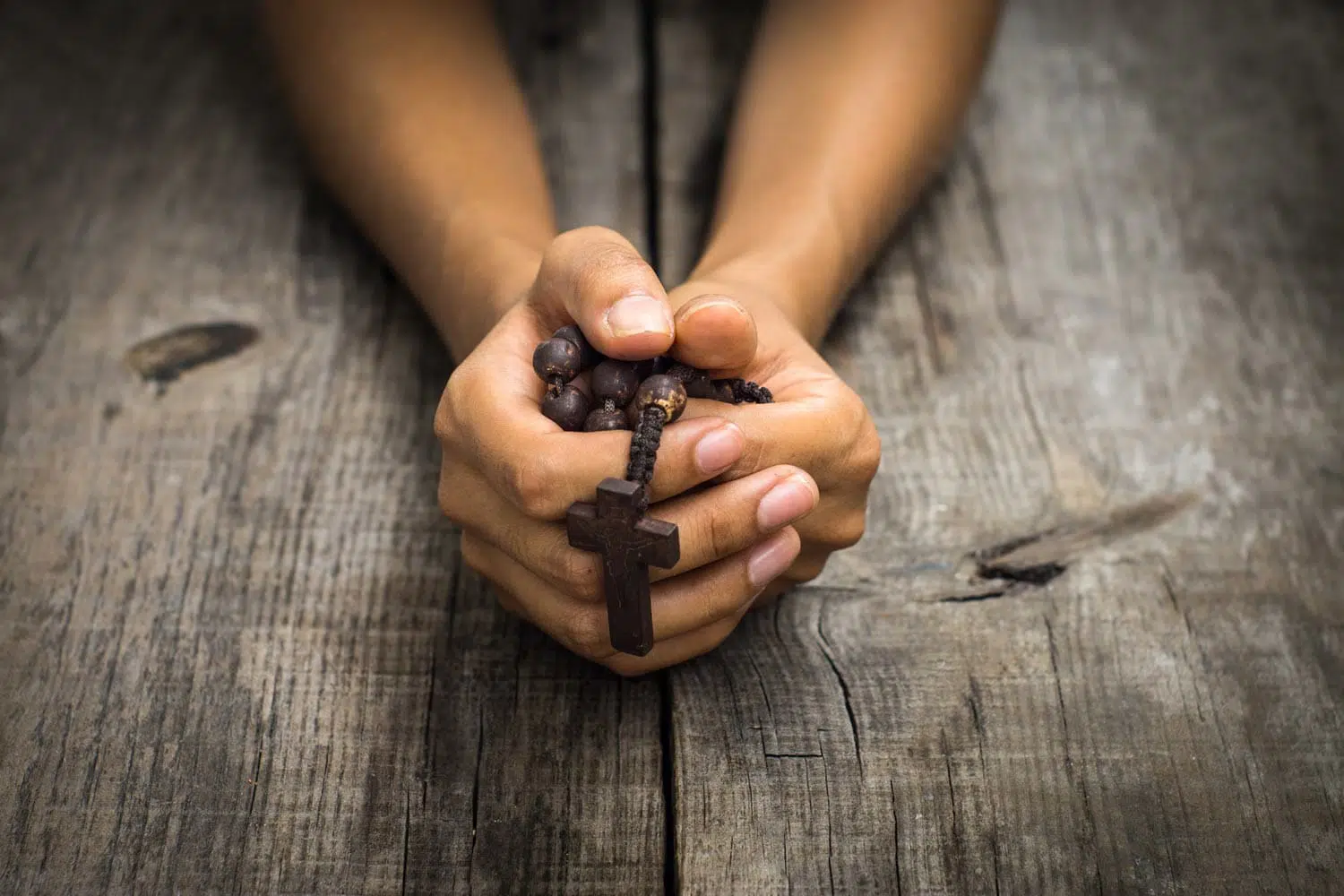Sixteen words. Just sixteen words amended to the U.S. Constitution set out the conditions for religious freedom in America. These are the beginning words of the First Amendment:
“Congress shall make no law respecting an establishment of religion, or prohibiting the free exercise thereof.”1
You are free to choose a religion or not, as you wish, without government interference. Since you are the parent to your children and make legal decisions for them until they are adults, you are free to choose their religion, too. Who, though, gets to choose when you and your wife divorce or when you split from your child’s mother? Let’s look to your agreed upon child custody arrangement.
Custody in Virginia
Virginia recognizes two types of custody under Virginia Code:
- Physical Custody
- Legal Custody
You and your ex-wife or ex-girlfriend could share physical custody; you could both have the kids exactly equal amounts of time and be equally responsible for everyday activities like getting them to school, after-school sports or clubs, buying groceries, and so on.
Legal custody is another matter. The parent who has legal custody over children bears a significantly greater burden than the other parent. Legal custody means the parent decides, legally, what is best for the child in many scenarios:
- Medical and dental concerns — including life-or-death scenarios
- Educational programming — including tutoring, private school, and extracurricular opportunities
- Religious affiliation — which faith, which church, or no church at all
- Major spending — new car for your teen, vacation, the child’s senior trip
Joint Custody
For both physical and legal custody, a Virginia judge can award shared (joint) custody to you both, or sole custody to either one of you. A list can help you understand how many different possibilities, or permutations, this creates:
- You get sole physical custody and she gets sole legal custody;
- You get sole physical custody and sole legal custody;
- She gets sole physical custody and you get sole legal custody;
- She gets sole physical custody and sole legal custody;
- You both get shared physical custody and you get sole legal custody;
- You both get shared physical custody and she gets sole legal custody;
- You both get shared physical custody and shared legal custody;
- You get sole physical custody and you both get shared legal custody;
- She gets sole physical custody and you both get shared legal custody
This may seem maddening, but by having all possible choices before it, a Virginia Juvenile & Domestic Relations (J&DR) Court can do what is best for the children involved in the divorce. Keep that in mind: in the best interest of the child. It is the underlying force behind all juvenile decisions legally enshrined in the Code of Virginia, as in the aptly titled § 20-124.3, “Best Interests of the Child; Visitation.”
Religion and Custody
Whoever has legal custody, then — no matter what the conditions of physical custody are — determines the child’s religious upbringing. Say you have physical custody but the judge saw fit to award legal custody to your wife. She has every legal right to tell you to get up at 7:00 a.m. on a Saturday and take your kids to a synagogue. Though Virginia’s population is, according to Sperling’s Best Places, only 0.34 percent Jewish, she can determine your kids’ religious affiliation as she wishes, and you have little recourse.
This works in reverse, too: if you have legal custody but she has physical custody, you can dictate that your children follow no religion (as 54.3 percent of Virginians do, says Sperling’s). This means she may be a devout Baptist along with the rest of Virginia’s 10.7 percent of the population (Sperling’s again), but she cannot ignore your directive that the kids not attend church.
Practicality in Child Custody Agreements
A Virginia judge would generally not complicate parents’ lives by selecting one of the more challenging permutations of custody. Consider the reasons physical custody is granted: suitable parenting skills, financial stability, proximity to the children’s schools, and minimal disruption to the children’s lives. All the conditions are laid out in § 20-124.3. That same parent, then, is also qualified (in most cases) to have legal custody.
As a practical matter, joint legal custody is a good idea for those major, life-changing decisions the two divorced parents face, no matter who has physical custody. Both of you have to communicate with each other, and neither can exert her or his exclusive will over your children.
So suppose your wife wants them to be raised in the Jewish faith and you want them to be agnostic. You have to compromise and come to an agreement. You could agree to have them attend a Jewish synagogue every other weekend; perhaps you will consult a rabbi and a philosopher for guidance. The point is, with both of you sharing legal responsibility for your children, you must work together and work it out.
If, though, you have legal custody, you do get the final say in your children’s religious upbringing. With a call to the child custody lawyers of The Firm For Men at 757-383-9184, or with an online contact, you can learn exactly what Virginia law has to say about legal and physical custody. Our attorneys work overtime to safeguard Virginia men’s rights.
1. https://www.law.cornell.edu/constitution/first_amendment


